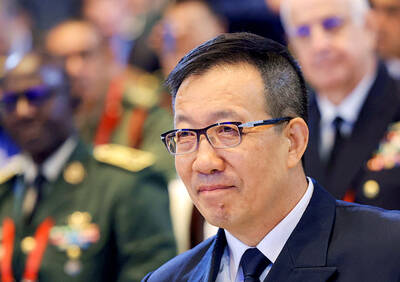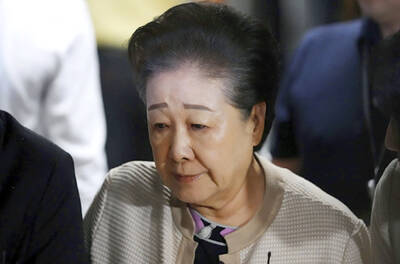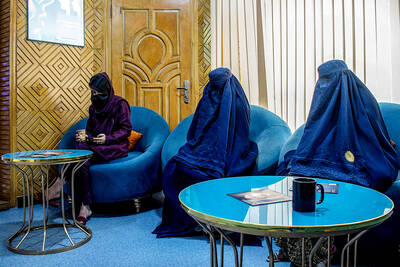A round of UN climate talks was wrapping up on Friday, helped by a dose of trust after the Copenhagen Summit, but still troubled by the splits which drove that historic conference close to disaster.
After 12 days of talks, delegates were issued with a gingerly worded document which seeks to revive the quest toward a post-2012 treaty after the rows in Copenhagen last December.
If approved, the draft text would become an official blueprint for negotiations.
And in turn, if all goes well, that would culminate in a deal — possibly by the end of next year — which would slash emissions of greenhouse gases and channel billions of dollars in aid to poor countries in climate change’s firing line.
After Copenhagen, where bickering and nit-picking brought the world’s biggest summit close to a breakdown, the mood in Bonn showed a good improvement, delegates said.
“Many of the issues, especially the issues that are important to developing countries, are being discussed in a more effective and constructive way,” said Yvo de Boer, making his swan song as the UN Framework Convention on Climate Change’s (UNFCCC) executive secretary.
“This all in all is a big step forward, making much more possible in Cancun,” he said.
The talks were the mid-way point to the next big UNFCCC gathering, taking place in the Mexican resort of Cancun from Nov. 29 to Dec. 10.
But beneath the brighter tone, problems of substance remained.
Major blocs set down early markers of their opposition to the tentative text, drafted by Margaret Mukahanana-Sangarwe of Zimbabwe, who chairs the main negotiating group.
The document puts forward a range of goals for cutting greenhouse gases, including slashing emissions by as much as 85 percent by 2050 compared with 1990 levels, and sketches objectives for climate aid and deforestation.
Debate is likely to be furious at the next round of talks in Bonn in August over how to share out the burden and where to place priorities. In addition, the text still has big gaps, including the legal status of the post-2012 treaty.
The so-called G-77 bloc of developing countries and, separately, the associations of African states, small island states and least-developed states, warned that they considered the text to have many gaps, weighed in favor of rich economies or even violating the principles of the UNFCCC.
They were especially worried it meant the death knell of the Kyoto Protocol, the world’s sole treaty that spells out targeted reductions in carbon emissions. Kyoto’s commitments expire at the end of 2012.
China’s delegate Su Wei (蘇偉) poured criticism on Mukahanana-Sangarwe’s efforts.
“I was very much surprised,” said Su. Referring to a 2007 initiative that charted the way towards the envisioned treaty, he charged: “You deviated from the Bali Road Map by 50 percent.”
Others were less harsh.
“We’ve got problems with it [the text] as everyone has, but we are prepared to move forward on it as a basis for discussion ... at least we’ve got a starting point,” South African delegate Alf Wills said.
The US was non-committal, saying it would closely study the text.
“Everyone will find something they like, as well as something they hate,” Kaisa Kosonen of Greenpeace said.
Alden Meyer of the Union of Concerned Scientists warned that the clock was ticking.
“With only two weeks of negotiating time now left before Cancun, it is vital that countries move beyond procrastination and start engaging in direct negotiations on these big issues when they return in August,” Meyer said.
Man-made greenhouse gases are a by-product of burning oil, gas and coal, which provides the backbone of today’s energy supply, and from deforestation.
Colorless and odorless, these gases are accumulating in the lower atmosphere, trapping heat from the Sun in the famous “greenhouse” effect.
On current trends, warming from the sun will so disrupt Earth’s fragile climate system that many millions of people will face worse droughts, floods, storms and rising seas levels by the end of the century, the UN’s climate panel says.

COMFORT WOMEN CLASH: Japan has strongly rejected South Korean court rulings ordering the government to provide reparations to Korean victims of sexual slavery The Japanese government yesterday defended its stance on wartime sexual slavery and described South Korean court rulings ordering Japanese compensation as violations of international law, after UN investigators criticized Tokyo for failing to ensure truth-finding and reparations for the victims. In its own response to UN human rights rapporteurs, South Korea called on Japan to “squarely face up to our painful history” and cited how Tokyo’s refusal to comply with court orders have denied the victims payment. The statements underscored how the two Asian US allies still hold key differences on the issue, even as they pause their on-and-off disputes over historical

BEIJING FORUM: ‘So-called freedom of navigation advocated by certain countries outside the region challenges the norms of international relations,’ the minister said Chinese Minister of National Defense Dong Jun (董軍) yesterday denounced “hegemonic logic and acts of bullying” during remarks at a Beijing forum that were full of thinly veiled references to the US. Organizers said that about 1,800 representatives from 100 countries, including political, military and academic leaders, were in Beijing for the Xiangshan Forum. The three-day event comes as China presents itself as a mediator of fraught global issues including the wars in Ukraine and Gaza. Addressing attendees at the opening ceremony, Dong warned of “new threats and challenges” now facing world peace. “While the themes of the times — peace and development —

BRIBERY ALLEGATIONS: A prosecutor said they considered the risk of Hak-ja Han tampering with evidence to be very high, which led them to seek the warrant South Korean prosecutors yesterday requested an arrest warrant for the leader of the Unification Church, Hak-ja Han, on allegations of bribery linked to the country’s former first lady and incitement to destroy evidence. The move came a day after the 82-year-old was questioned over her alleged role in bribing former first lady Kim Keon-hee and a lawmaker. Founded in 1954 by her late husband, Sun Myung Moon, the Unification Church has long been the subject of controversy and criticism, with its teachings centered on Moon’s role as the “second coming” and its mass weddings. Followers are derisively referred to as “Moonies.” However, the church’s

Decked out with fake crystal chandeliers and velvet sofas, cosmetic surgery clinics in Afghanistan’s capital are a world away from the austerity of Taliban rule, where Botox, lip filler and hair transplants reign. Despite the Taliban authorities’ strict theocratic rule, and prevailing conservatism and poverty in Afghanistan, the 20 or so clinics in Kabul have flourished since the end of decades of war in the country. Foreign doctors, especially from Turkey, travel to Kabul to train Afghans, who equally undertake internships in Istanbul, while equipment is imported from Asia or Europe. In the waiting rooms, the clientele is often well-off and includes men